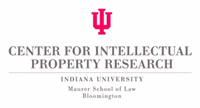Document Type
Article
Publication Date
2025
Publication Citation
14 IP Theory 43
Abstract
Intellectual Property and queer theory share a fundamental concern with the interplay between private and public, tangible and intangible, and language and form. Queer theory emphasizes how language impacts the construction of identity and belonging, highlighting that discourse plays a pivotal role in structuring gender, sexuality, and normativity. Intellectual Property is often portrayed as strictly neutral, laser-focused on spurring creativity and innovation. However, is this portrayal reflective of reality? And does this purported neutrality hold up in IP’s rhetoric? By examining two principal IP terminologies through a queer lens – the term “protection” to describe IP legal privilege, and the metaphor of “paternity” to describe the link between authors and works – this article argues that IP rhetoric exhibits biased, gendered, and heteronormative characteristics. These terminologies reverberate in IP doctrine, case law, and literature, channelling certain individuals and groups into categories of proper and improper, socially desirable and undesirable, worthy and unworthy. This not only reinforces hegemonic power structures in innovation and culture but also significantly influences individuals’ well-being, participation, and the fabric of public life. Yet, it also exposes a powerful tenet of queer theory – the potential to reclaim terminologies and suggest different readings of conventional wisdoms.
Recommended Citation
Sarid, Eden
(2025)
"Paternity, Protection, and Pirates: A Queer Theory Analysis of Intellectual Property Metaphors,"
IP Theory: Vol. 14:
Iss.
1, Article 3.
Available at:
https://www.repository.law.indiana.edu/ipt/vol14/iss1/3
Included in
Intellectual Property Law Commons, Law and Gender Commons, Science and Technology Law Commons, Sexuality and the Law Commons
